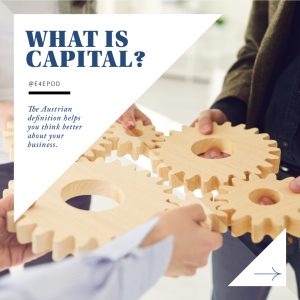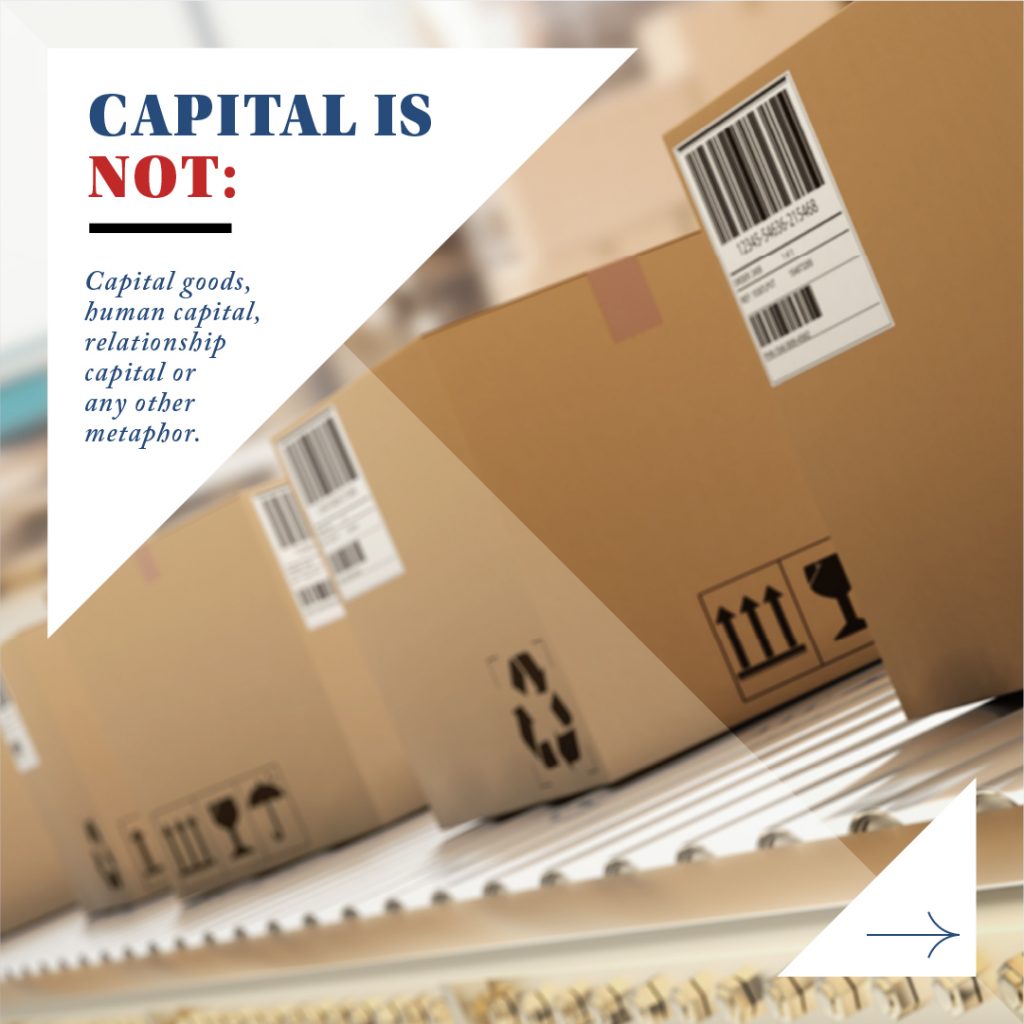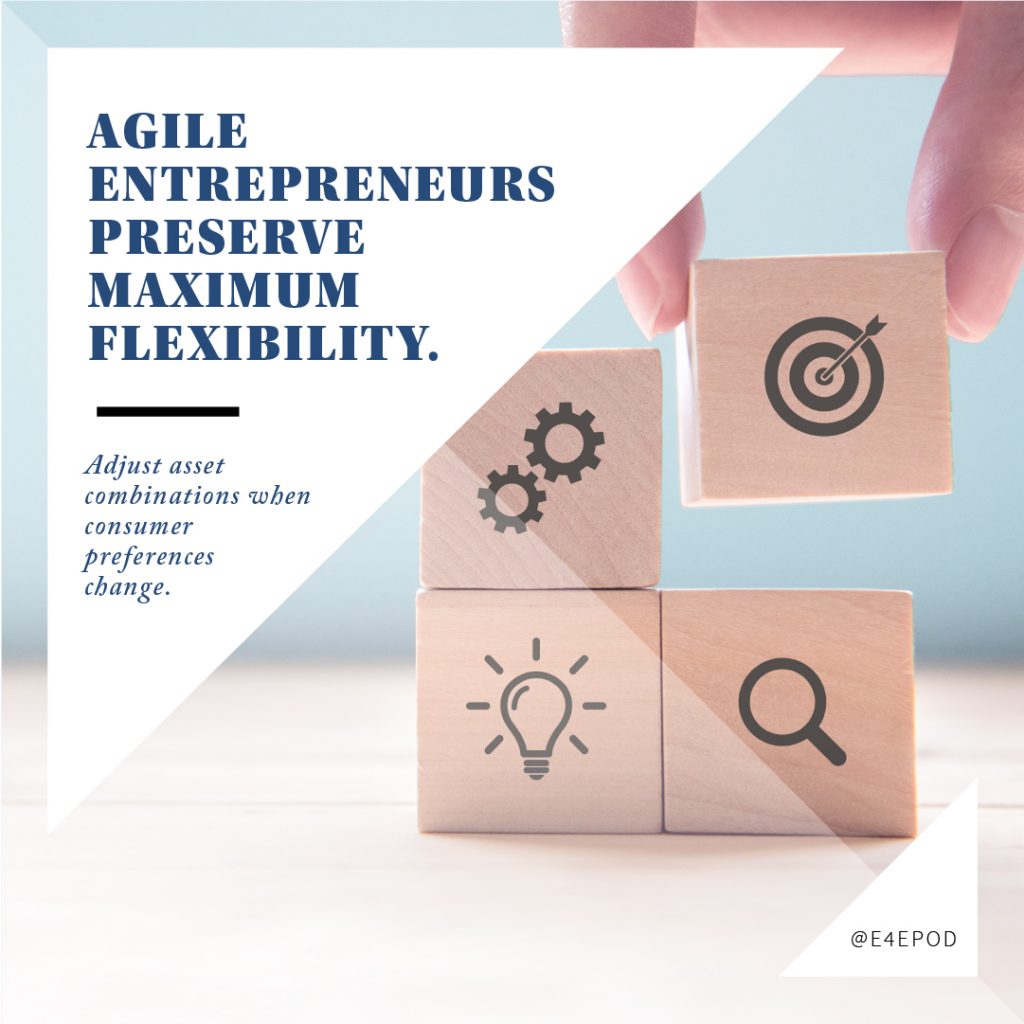Customers Are Your Firm’s Capital. Invest In Them.
In a book titled “Who Do You Want Your Customers To Become?”, Michael Schrage identifies customers as a firm’s human capital. The purpose of a firm, in his construct, is to design future customers: to anticipate how they will behave and think and feel when they adopt and use the firm’s new product or service.
This view has a lot of merits. It’s future-oriented as all entrepreneurial perspectives must be: what sort of future can I imagine and how can I bring it about? It’s based on customer primacy, recognizing that it is future users of the firm’s innovation who will be decisive in success or failure. It recognizes that value lies in customer experience and that there is a lot of uncertainty in predicting future value because the customer doesn’t know what that experience is going to feel like.
Can a firm design this future experience, as Michael Schrage suggests they do? It’s unlikely. Why? Because the experience is entirely subjective. The evaluation of it is in the consumer’s mind. And since it’s a future experience, and hasn’t yet occurred, then the feeling of it is impossible to frame.
However, there is a wonderful nugget of new understanding in the concept of customers as capital. In traditional economics, businesses invest in their own capital base in order to generate a future revenue stream. Investment in manufacturing capital enables the production of goods to sell and thereby generate sales revenue. Investment in people and their skills and technology to support them enables the delivery of services that generate customer revenue. Capital generates revenue flows. Interestingly, the revenue flows back to the capital owner from the customer. Do we have the picture the right way round? This kind of capital isn’t generating revenue flows, it’s attracting them from customers. Should customers think about investing in customers rather than in their own capital?
Capital increases capacity to produce and perform. When Apple puts an iPhone in the possession of a customer, it is enabling that customer to become more productive – to send e-mails more easily and frequently, to gather information faster, to make or view videos conveniently, to listen to music, to buy and sell through e-commerce, and a whole host of capabilities. Many of these new and enhanced capabilities will directly benefit Apple of course – using paid services, buying accessories, using the Apple Pay system, and generally expanding Apple’s ecosystem and network. Google search technology makes customers into better searchers, using the system more frequently, making it more intelligent, providing feedback.
Amazon Web Services rents or leases its own capital to customers in the form of cloud storage and cloud-based computing and additional digital services. The customers control that capital for the duration of the lease period. They are capitalized by AWS. They are more capable than they were before – they can produce more, and contribute more to both the amazon ecosystem and the economy as a whole. AWS is investing in making its customers better users of AWS by providing them with capital. When the capital is in the customer’s domain, the revenue flows back to AWS.
In the second sense of capital, Apple, Google and Amazon are investing in enhancing their customers’ human capital value. They become more skillful, have access to more knowledge, can make network connections more fluidly, and can work faster and with more convenience and remotely. At this new higher level of human capital value, they are more valuable customers. Customer loyalty is an old-fashioned way to think. Customer enablement is closer to the case. And every time Apple sends a software update over the network, or Google adds some code or some new links to its search algorithm, or AWS adds a new service to its suite, they add even more to the capitalization of their customers. More enabled equals more valuable.
How can your business invest in making its customers more capable by putting capital in their hands or putting it under their control? If you are a supplier of products to the building trade, can you provide them with ordering software or search software or payment systems software to make them more capable and more efficient? If you are a direct primary care physician, can you provide your patients with more access to knowledge or more connections on their network or some other knowledge capital that will make them smarter and better patients? If you are a trucking company can you provide warehouses with better tracking data so that the bay is more likely to be open when you arrive, saving both you and the customer precious turnaround time? These are not investments in your own capital, they’re investments in customer capital – in customers as capital.
The other side of the coin is that customer dissatisfaction that results from poor service or unkept promises is a wasting of your capital. Destroying your own capital is no recipe for success. Customer churn is like burning down your office building or your factory. Do everything you can to make sure it doesn’t happen to you.
Considering your customers as capital will change the way you think of investing and allocating resources.





